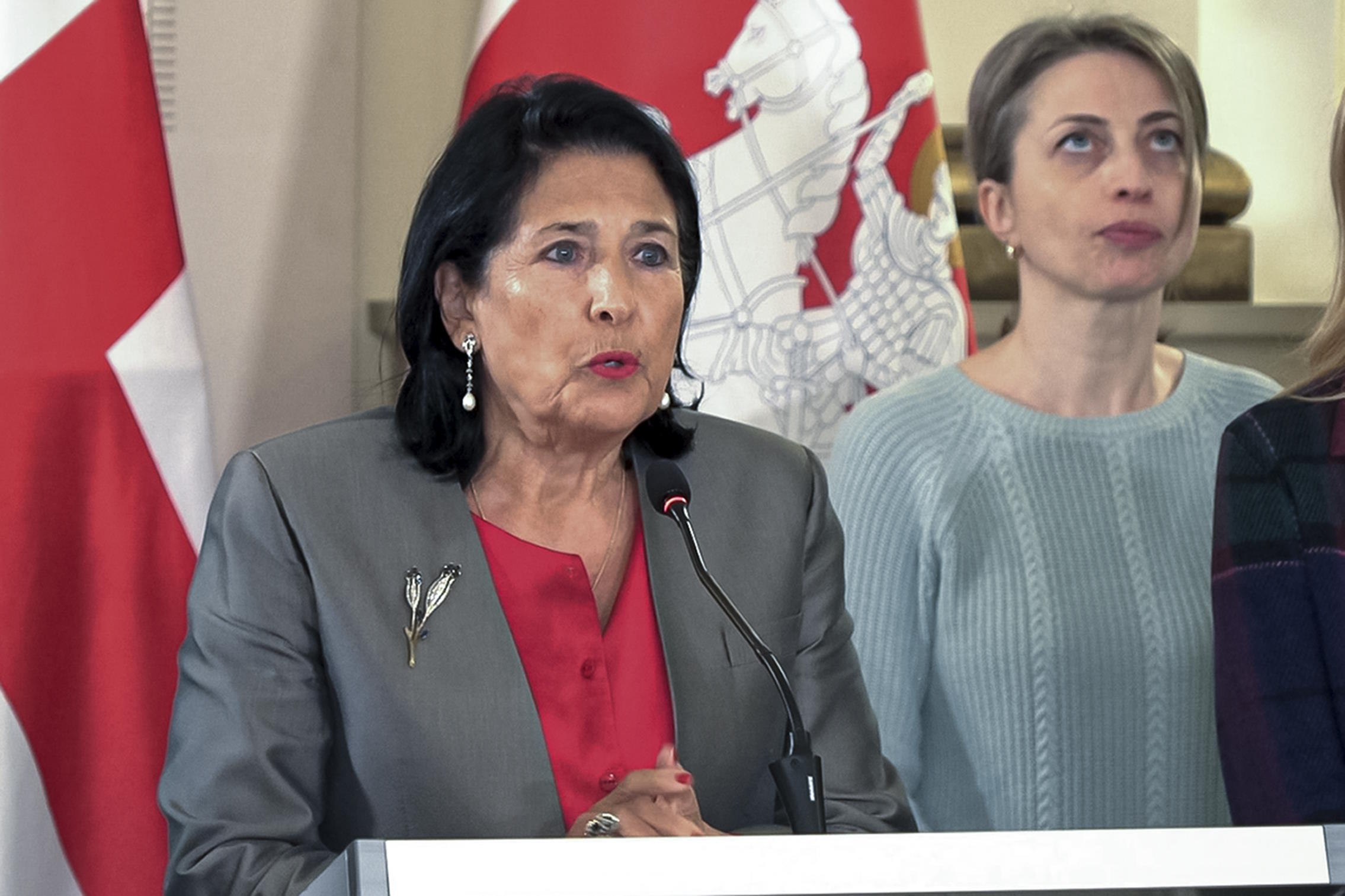Georgian President Salome Zourabichvili said Sunday she did not recognize the official results and that the country had fallen victim to a "Russian special operation" aimed at pulling it back into Moscow's orbit and derailing its plan to join the European Union.
Zourabichvili, a fierce critic of the governing party, urged Georgians to rally on the main street of the capital, Tbilisi, on Monday night to protest what she called a "total falsification, a total stealing of your votes," raising the prospect of more political turmoil in the South Caucasus nation.
U.S. Secretary of State Antony Blinken said on the social media platform X that "the Georgian people embraced democracy yesterday" and urged Georgia's political leaders to "respect the rule of law, repeal legislation that undermines fundamental freedoms, address deficiencies in the electoral process, and move Georgia toward its Euro-Atlantic future."
The Central Election Commission said Sunday that the governing Georgian Dream party received 54.8% of Saturday's votes with almost all ballots counted. The party — established by Bidzina Ivanishvili, a shadowy billionaire who made his fortune in Russia — has become increasingly authoritarian over the past year, adopting laws similar to those used by the Kremlin to crack down on freedom of speech.
The EU suspended Georgia's membership application process indefinitely because of a Russian-style "foreign influence law" passed in June. Many Georgians viewed Saturday's vote as a pivotal referendum on the opportunity to join the EU.
The election campaign in the nation of 3.7 million people, which borders Russia, was marked by a bitter fight for votes and allegations of a smear campaign. European electoral observers said the election took place in a "divisive" environment marked by intimidation and instances of vote buying, double voting and physical violence.
During the campaign, Georgian Dream used "anti-Western and hostile rhetoric ... promoted Russian misinformation, manipulations, and conspiracy theories," said Antonio López-Istúriz White, the head of the European Parliament monitoring delegation.
The election observers said instances of intimidation and electoral violations were particularly noticeable in rural areas.
Georgian Dream scored its highest share of the vote — almost 90% — in the Javakheti region of southern Georgia. In the capital it received no more than 44% in any district.
Prime Minister Irakli Kobakhidze, a member of Georgian Dream, on Sunday described his party's success as "impressive and obvious," and that "any attempts to talk about election manipulation ... are doomed to failure."
Initial figures suggested voter turnout was the highest since Georgian Dream was first elected in 2012. The party has vowed to continue the push toward EU accession but also "reset" ties with Georgia's former imperial master, Russia. In 2008, Georgia fought and lost a brief war with Russia, which then recognized the independence of two breakaway Georgian regions and beefed up its military presence there.
The president of the European Council, Charles Michel, called on Georgian officials to "swiftly, transparently and independently investigate" the electoral irregularities and urged the governing party to demonstrate its "firm commitment" to the EU.
Hungary's Victor Orbán was the first foreign leader to congratulate Georgian Dream and will be the first to visit Georgia and meet the prime minister during a trip to Tbilisi on Monday and Tuesday.
